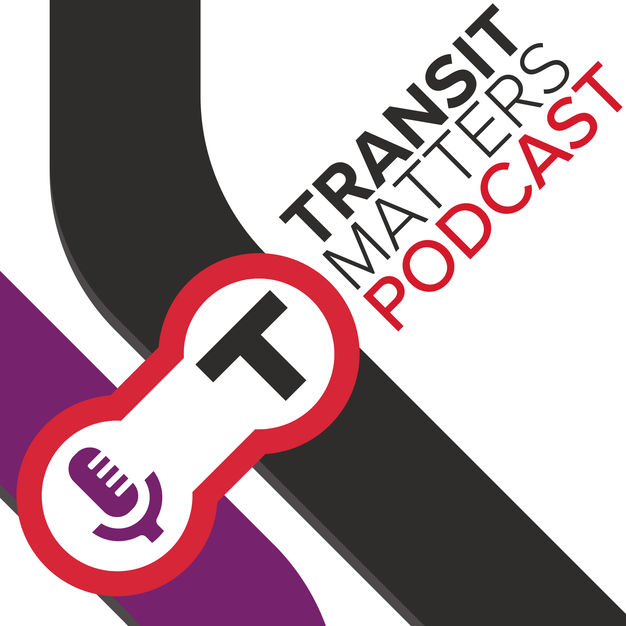
Transitmatters
TransitMatters
The TransitMatters is your source for transportation news and analysis in Boston. We promote the use and growth of public transit, walking, cycling, skating and other sustainable modes.
- Codcast 101: Salvucci takes new tack on West Station
Transportation guru Fred Salvucci said on the Codcast that the proposed West Station is needed now to deal with congestion in Kenmore Square and the Seaport District, not future congestion caused by Harvard University's creation of a new neighborhood in the Allston Landing area.
Salvucci’s position is sharply at odds with the views of the Baker administration, which believes current ridership projections for the station are too low to justify building West Station in the near future. Transportation Secretary Stephanie Pollack has said it would be wise to hold off on West Station until around 2040 when Harvard's development plans for the area are more fully formulated.
But Salvucci, who served 12 years as state transportation secretary under former governor Michael Dukakis and now teaches at MIT, said the transit connections offered by West Station are needed now to relieve existing congestion on the Massachusetts Turnpike.
10 June 2018, 2:00 pm - 31 minutes 23 secondsCodcast 100: Salvucci traces decline of T to Weld administration
Note: This podcast was originally broadcast on Commonwealth Magazine’s Codcast
Fred Salvucci, one of the state’s most influential transportation officials, traces the decline of the MBTA to the early years of the administration of former governor William Weld.
Salvucci, who served 12 years as secretary of transportation under former governor Michael Dukakis and now teaches at MIT, said support for transit gained momentum after former governor Frank Sargent in the early 1970s brought a halt to new highway construction inside Route 128. Under Dukakis, Salvucci said, transportation officials turned their focus to extending the Red Line to Alewife, expanding the Orange Line, and burying the expressway through downtown, a project that came to be known as the Big Dig.
Throughout the 1980s, according to Salvucci, the MBTA built complicated transit projects and managed the system well. He said the successes were important. “If we had just succeeded in stopping bad things and not succeeded in getting some good things built, the bad things would have just come back,” Salvucci said during a Codcast hosted by Josh Fairchild and Jim Aloisi of TransitMatters.
4 June 2018, 2:00 pm - 1 hour 10 minutesPodcast Episode 31 - Ride Sharing, Taxis, and Transit
The TransitMatters Podcast returns from break with a discussion on Lyft and ride sharing services with special guest Tyler George, General Manager of Lyft Boston. Tyler has a spirited discussion with hosts Josh Fairchild, Jeremy Mendelson and recurring panelist, sound engineer (and former General Manager for both Zipcar's Chicago operation and for Hubway bike share here in Boston) Scott Mullen. Our discussion focused on ride sharing services and its effect on the Taxi industry and Transit. This episode was recorded in the studios of WMBR 88.1fm Cambridge, engineered by Scott Mullen, and edited by Charleston Sarjeant.
Like what you hear? Share it around, tell your friends and colleagues, and subscribe to the blog and podcast — through iTunes or Google Play. Support our work by becoming a member, donating, or volunteering.
Find out more about Josh, Jeremy, and other board members.
Send us your feedback by connecting with us on our various social media channels or contact us here.
18 October 2016, 10:30 am - 28 minutes 17 secondsPodcast Episode 30.5 - Ride-Along with Jim Aloisi to WGBH's The Scrum
Buses berth at Sullivan Square in Somerville, MA [Photo via Flickr]
For this mini-episode of the podcast, we were joined by former Massachusetts Transport Secretary and TransitMatters Board Member Jim Aloisi. We both took a trip on transit from Haymarket Station to Brass Union in Somerville's Union Square.
This episode was recorded on 12 July in the lively environs of an Orange Line train, a CT2 bus, and under the I-93 overpass at Sullivan Square.
During the episode we talked about:
- Hillary Clinton's MetroCard Miscue
- The BTD Sullivan Square/Rutherford Ave study - check out the presentation [PDF] from the last meeting that we couldn't personally make. Were you there? Let us know in the comments!
- The various overlapping studies happening in and around Sullivan Square
- We lamented the delay of Green Line Extension
- We discussed concern over proactive development to counteract gentrification in Union Square and Sullivan Square
- City of New York is trying to be proactive - set-aside housing ordinance ensures mixed income, transparency about public benefits included in development
- Gentrification is inevitable, at least in part
- MBTA needs to make good on its goal for a system-wide assessment of routes - are they doing what people need today?
- My work on service advisories with the T, underscoring a fundamental need for attention to details of the rider experience...more on that from us soon!
- Complete streets and transit priority that Jim and Boston City Council President Wu experienced (separately) in the Netherlands
- NACTO has adopted in its Urban Street Design Guide and Transit Street Design Guide
- Unified fare payment system in Netherlands - OV-chipkaart - MBTA/MassDOT are modelling AFC 2.0 on modern fare payment systems like this
- McGrath highway grounding is also a project that we crossed during our brief trip
- Similar to Casey Arborway boulevardisation
- Syracuse is also…torn between rebuilding or tearing down a highway
And finally WGBH's The Scrum episode we spent 40 minutes trekking to! You can watch our live recording of The Scrum on Periscope.
Like what you hear? Share it around, tell your friends and colleagues, and subscribe to the blog and podcast - through iTunes or Google Play. Support our work by becoming a member, donating, or volunteering.
Find out more about Jim Aloisi, me, and our other board members.
Send us your feedback by connecting with us on our various social media channels or contact us here.
1 August 2016, 7:45 pm - 52 minutesPodcast 30 - Kids on Transit with Lee Biernbaum
[Lede Photo: Kids on transit is a tale as old as...transit — Shirley Temple Rides the 'L' via Flickr]
We're joined in studio by Lee Biernbaum, an economist for the U.S. Department of Transportation and author of the Kids In The Stairwell blog. We cover issues with kids on transit including strollers on buses and trains, having a car-free family and children using transit.
This episode was recorded on June 19th in the studios of WMBR 88.1 FM in Cambridge, engineered by Scott Mullen and edited by Charleston Sarjeant.
TransitMatters advocates for fast, frequent, reliable and effective public transportation in and around Boston. As part of our vision to repair, upgrade and expand the MBTA transit network, we aim to elevate the conversation around transit issues by offering new perspectives, uniting transit advocates and promoting a level of critical analysis normally absent from other media.
Like what you hear? Share it around, tell your friends and colleagues, and subscribe to the blog and podcast (on iTunes) to be notified of new posts and episodes. Support our work by becoming a member, making a donation or signing up to volunteer because we can't do this alone. Let us know what you think: connect with TransitMatters on Facebook or Twitter. Follow Jeremy Mendelson @Critical Transit, Josh Fairchild @hatchback31, Jarred Johnson @jarjoh, Marc Ebuña @DigitalSciGuy, Scott Mullen @mixmastermully or email us here.
12 July 2016, 11:00 am - 45 minutes 42 secondsPodcast 29 - Transit Advocacy with Rafael Mares from the Conservation Law Foundation
We're joined in studio by prominent Boston transit advocate Rafael Mares, Vice President and Director of Healthy Communities and Environmental Justice for the Conservation Law Foundation. CLF has been instrumental in improving access and mobility for MBTA users, including holding the state to transit project commitments they've tried to wiggle out of.
We discuss the current state of transit operations and investment, the Control Board and politics, the fate of long-awaited projects such the Green Line Extension, the Big Dig legacy, and much more. This episode was recorded on May 16 in the studios of WMBR 88.1 FM in Cambridge, engineered by Scott Mullen. Find Rafael Mares online at @RafaelMares2 or CLF.
TransitMatters advocates for fast, frequent, reliable and effective public transportation in and around Boston. As part of our vision to repair, upgrade and expand the MBTA transit network, we aim to elevate the conversation around transit issues by offering new perspectives, uniting transit advocates and promoting a level of critical analysis normally absent from other media.
Like what you hear? Share it around, tell your friends and colleagues, and subscribe to the blog and podcast (on iTunes) to be notified of new posts and episodes. Support our work by becoming a member, making a donation or signing up to volunteer because we can't do this alone. Let us know what you think: connect with TransitMatters on Facebook or Twitter. Follow Jeremy Mendelson @Critical Transit, Josh Fairchild @hatchback31, Jarred Johnson @jarjoh, Marc Ebuña @DigitalSciGuy, Scott Mullen @mixmastermully or email us here.
6 July 2016, 2:15 am - 58 minutes 42 secondsPodcast 28 - Commuter Rail Modernization & why the North South Rail Link matters
We're joined in studio by Brad Bellows in this conversation to talk about the state of Commuter Rail and what the North South Rail Link can do for our region. Brad is an architect, board member of the Association for Public Transportation, and a member of the North South Rail Link Working Group which is leading a renewed push to see the connector finally built.

This episode was recorded on April 19. [Our apologies for the long break, we've been busy advocating for better transit. More shows are in the pipeline. If you're interested in helping with podcast editing and blog posting, please email [email protected].]
TransitMatters advocates for fast, frequent, reliable and effective public transportation in and around Boston. As part of our vision to repair, upgrade and expand the MBTA transit network, we aim to elevate the conversation around transit issues by offering new perspectives, uniting transit advocates and promoting a level of critical analysis normally absent from other media.
Like what you hear? Share it around, tell your friends and colleagues, and subscribe to the blog and podcast (on iTunes) to be notified of new posts and episodes. Support our work by becoming a member, making a donation or signing up to volunteer because we can't do this alone. Let us know what you think: connect with TransitMatters on Facebook or Twitter. Follow Jeremy Mendelson @Critical Transit, Josh Fairchild @hatchback31, Jarred Johnson @jarjoh, Marc Ebuña @DigitalSciGuy, or email us here.
21 June 2016, 11:00 am - 1 hour 3 minutesPodcast 27 - Transportation For Massachusetts (T4MA)
We're joined in the studio by Transportation For Massachusetts (T4MA) staff -- Josh Ostroff, Partnerships Director & Charlie Ticotsky, Policy Director -- to let us know what they do and share recent news on their efforts to secure more funding for transit. Visit t4ma.org or follow them on Twitter @T4MASS. Read about MassDOT's improved but still inadequate Capital Improvement Plan on the T4MA blog.
This episode was recorded on April 5. [Our apologies for the long break, we've been busy advocating for better transit. More shows are in the pipeline. If you're interested in helping with podcast editing and blog posting, please email [email protected].]

TransitMatters advocates for fast, frequent, reliable and effective public transportation in and around Boston. As part of our vision to repair, upgrade and expand the MBTA transit network, we aim to elevate the conversation around transit issues by offering new perspectives, uniting transit advocates and promoting a level of critical analysis normally absent from other media.
Like what you hear? Share it around, tell your friends and colleagues, and subscribe to the blog and podcast (on iTunes) to be notified of new posts and episodes. Support our work by becoming a member, making a donation or signing up to volunteer because we can't do this alone. Let us know what you think: connect with TransitMatters on Facebook or Twitter. Follow Jeremy Mendelson @Critical Transit, Josh Fairchild @hatchback31, Jarred Johnson @jarjoh, Marc Ebuña @DigitalSciGuy, or email us here.
16 June 2016, 12:44 am - 57 minutes 55 secondsPodcast 26 - Security, Maintenance and A Plan for Overnight Bus Service
Many things led to the end of the most recent attempt to extend MBTA service late into the night, and the latest MBTA mitigation proposals don't really solve the problem. But what if, instead of trying to cater to the college entertainment demographic, we designed a comprehensive overnight network focused on people working early or late?
Ari Ofsevit, transportation planner and the Amateur Planner (@ofsevit), joins us as we consider (40:22) what a useful and affordable overnight network would look like, and how to finally make it happen. Building on the T's existing but little-known early morning trips (full details), we could have a citywide bus network that runs all night, every night. And no, the private sector is not the answer.
First we talk transit security in light of the increasingly frequent bombings around the world, and consider what the recent WMATA and BART shutdowns might tell us about the MBTA infrastructure. Also, why being honest about our situation and advocacy for their needs would earn the MBTA a lot of respect.
TransitMatters advocates for fast, frequent, reliable and effective public transportation in and around Boston. As part of our vision to repair, upgrade and expand the MBTA transit network, we aim to elevate the conversation around transit issues by offering new perspectives, uniting transit advocates and promoting a level of critical analysis normally absent from other media.
Like what you hear? Share it around, tell your friends and colleagues, and subscribe to the blog and podcast (on iTunes) to be notified of new posts and episodes. Support our work by becoming a member, making a donation or signing up to volunteer because we can't do this alone. Let us know what you think: connect with TransitMatters on Facebook or Twitter. Follow Jeremy Mendelson @Critical Transit, Josh Fairchild @hatchback31, Jarred Johnson @jarjoh, Marc Ebuña @DigitalSciGuy, or email us here.
31 March 2016, 12:50 am - 1 hour 2 minutesPodcast 25 - Fare Increases, Transfers, Late Night and how to advocate for better transit

"Trust your money to Charlie and save"
The MBTA Control Board voted Monday to raise fares by 10 percent or more despite disruptive protests by community advocates. The extra revenue will be dedicated to infrastructure upgrades, prompting many questions. We'll discuss the bright spots (student pass, transfers, Commuter Rail zone study) and see where we go from here.
Federal regulators object to the elimination of late night service without a proper civil rights analysis and mitigation. What does this mean, and what might mitigation look like?
Boston held a City Council hearing with the T General Manager on Commuter Rail fares, a small step toward realizing our vision for an integrated regional rail network that becomes the preferred travel option. Community feedback and the responses of the GM say a lot about the current state of the Commuter Rail. Look out for an upcoming City Council hearing on transit signal priority for buses and trolleys, and let your councilors know you want better transit.
TransitMatters advocates for fast, frequent, reliable and effective public transportation in and around Boston. As part of our vision to repair, upgrade and expand the MBTA transit network, we aim to elevate the conversation around transit issues by offering new perspectives, uniting transit advocates and promoting a level of critical analysis normally absent from other media.
Like what you hear? Share it around, tell your friends and colleagues, and subscribe to the blog and podcast (on iTunes) to be notified of new posts and episodes. Support our work by becoming a member, making a donation or signing up to volunteer because we can't do this alone. Let us know what you think: connect with TransitMatters on Facebook or Twitter. Follow Jeremy Mendelson @Critical Transit, Josh Fairchild @hatchback31, Jarred Johnson @jarjoh, Marc Ebuña @DigitalSciGuy, or email us here.
9 March 2016, 12:30 pm - 1 hour 10 minutesPodcast 24 - Rich Davey, Former MBTA GM & Secretary of Transportation
Former MBTA General Manager and MassDOT Secretary, Rich Davey joins us to reflect on his experience and share insight into the current challenges and opportunities facing the T.
Why has the service become so unreliable? Will we ever plan for and implement system upgrades? How can we better use our existing services and resources? Are the labor and management needs being met? How can the T communicate more effectively as well as advocate for itself and the needs of riders? Can we do effective regional planning and forge a working relationship with advocates and cities? How do we raise revenue, and should that be a priority? We finally put to rest the argument over the word annual: whether fares are legally allowed to rise by 5 or 10 percent. And much more.
Prior to running the MBTA, Rich Davey was the General Manager of the Commuter Rail operator. We talk about activating the Fairmount Line and some other ways to improve the Commuter Rail. How might more effective regional planning enable the Commuter Rail to address local and regional transportation challenges?
Transit Matters is a non-profit organization working for fast, frequent, reliable and effective transportation in Boston by elevating the conversation on transportation. By offering new perspectives, uniting transit advocates and promoting a level of critical analysis normally absent from other media, we can achieve a useful and effective transportation network because Transit Matters.
Like what you hear? Share it around, tell your friends and colleagues, and subscribe to the blog and podcast (on iTunes) to be notified of new posts and episodes. Support our work by becoming a member, making a donation or signing up to volunteer because we can't do this alone. Let us know what you think: connect with TransitMatters on Facebook or Twitter. Follow Jeremy Mendelson @Critical Transit, Josh Fairchild @hatchback31, Jarred Johnson @jarjoh, Marc Ebuña @DigitalSciGuy, or email us here.
11 February 2016, 7:10 pm - More Episodes? Get the App
Your feedback is valuable to us. Should you encounter any bugs, glitches, lack of functionality or other problems, please email us on [email protected] or join Moon.FM Telegram Group where you can talk directly to the dev team who are happy to answer any queries.
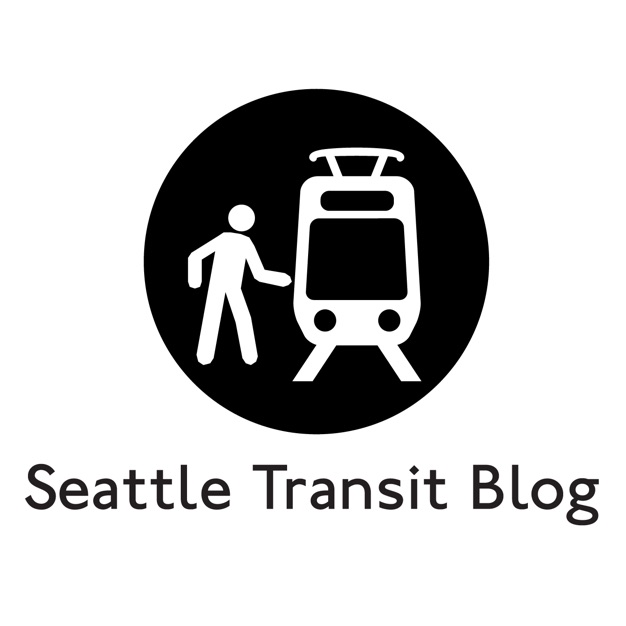 Podcast – Seattle Transit Blog
Podcast – Seattle Transit Blog
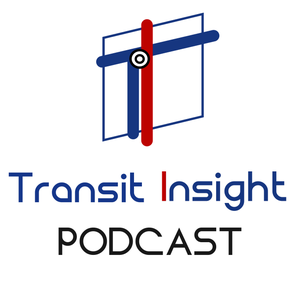 Transit Insight
Transit Insight
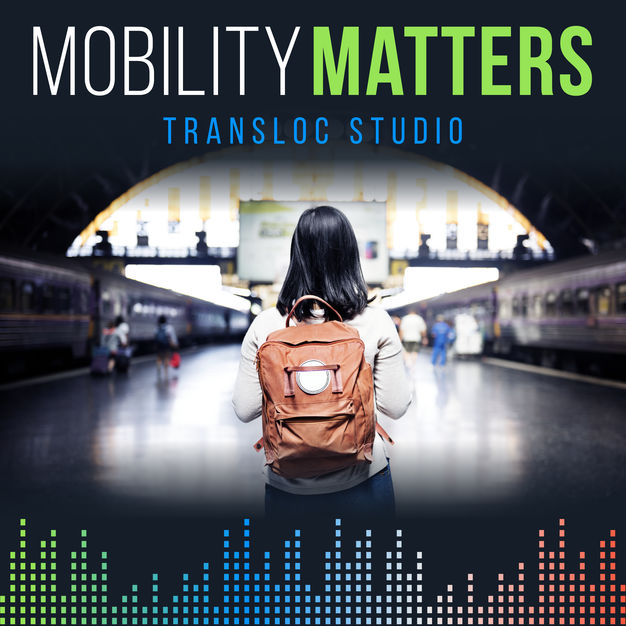 TransLoc Mobility Matters Podcast
TransLoc Mobility Matters Podcast
 State House Takeout
State House Takeout
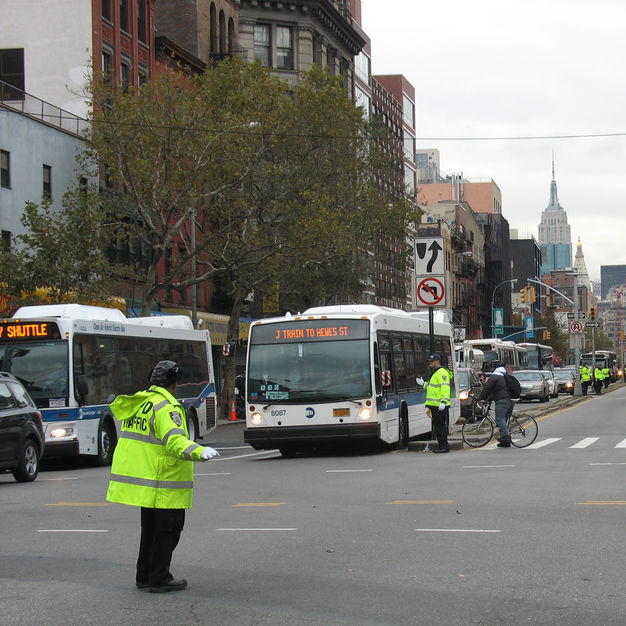 Critical Transit
Critical Transit